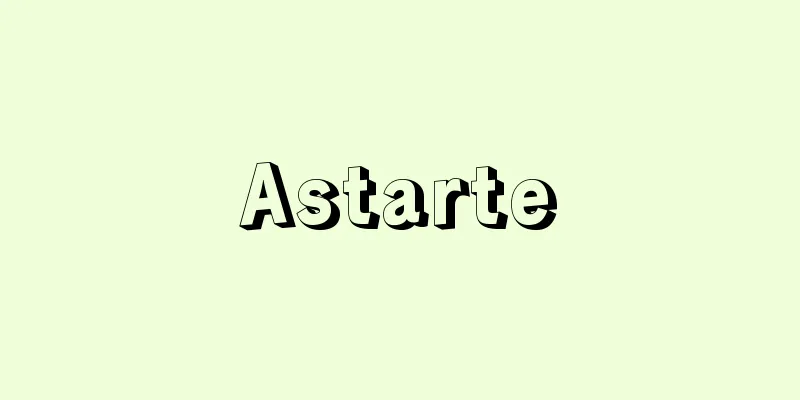Astarte

|
An ancient Semitic fertility goddess. In Babylonia she was known as Ishtar, and in the Old Testament she was known as Ashtoreth or Ashtaroth. She was the most widely worshipped mother goddess in the ancient Middle East. She was a symbol of the fertility of the earth, and was ruled by Venus, the goddess of love and war. She corresponds to Artemis and Aphrodite in Greek mythology. → Related articles Baal | Venus | Mother Goddess Statue Source : Heibonsha Encyclopedia About MyPedia Information |
|
古代セム人の豊穣女神。バビロニアではイシュタル,旧約聖書ではアシュトレトないしアシュタロト。古代中東で最も広く崇拝された大母神。大地の生産力の象徴で,愛と戦いの女神,金星がその支配星。ギリシア神話のアルテミス,アフロディテなどに対応する。 →関連項目バアル|ビーナス|母神像 出典 株式会社平凡社百科事典マイペディアについて 情報 |
>>: Astāna - Asutāna (English spelling)
Recommend
Atomic bomb disease - genshibakudansho (English spelling)
This is a disease caused by exposure to atomic bom...
Santur - Santur (English spelling) Persian
A stringed instrument of the zither family used i...
Seiichi Katsumata
Politician. Born in Shizuoka Prefecture on Februa...
Atman - Artman (English spelling) Ātman
A term in Indian philosophy indicating the "...
Boston Tea Party
On December 16, 1773, residents of the Massachuset...
Piazza Armerina (English spelling)
A town in southern Italy, about 40 km north of Gel...
Gur
...A branch of the Niger-Kordofan language family...
detector
…Generally, a device used to detect minute voltag...
Swallow - Tsubame
[1] (noun) 1. A general term for birds of the swal...
CAB - CAB
Civil Aeronautics Board : The Civil Aeronautics Bo...
Lower meridian passage
…Normally, a rising or setting star crosses the m...
Parmesan cheese
…The main cheeses are classified according to the...
Wang Meng
A Chinese painter from the late Yuan Dynasty. He ...
Cantonese Brocade
… In Japan, ikat weaving developed dramatically f...
Caprilli, F.
...In the 19th century, Comte Antoine d'Aure ...



![Okuyagen [Hot Spring] - Okuyagen](/upload/images/67cfce1dc357c.webp)





